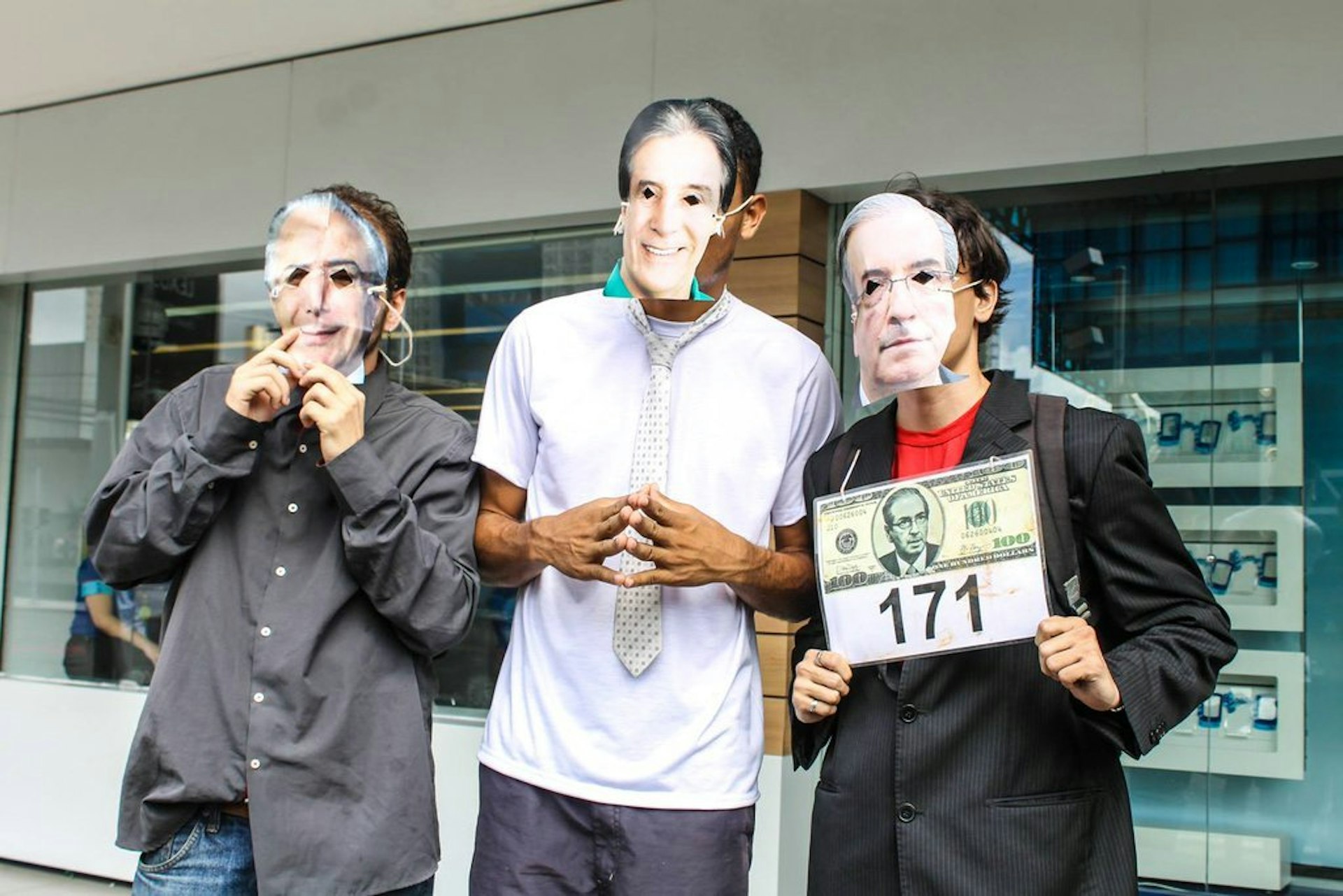
The ugly face of Brazil’s coup revealed: old, white and exclusively male
- Text by Alex King
- Photography by Mídia Ninja
Months of political circus in Brazil have come to head as Dilma Rousseff of the Worker’s Party (PT) has finally been stripped of her presidency. Following a drawn-out impeachment process, in which a corrupt lower house voted to impeach Dilma (a decision which was annulled and then reinstated within 12 hours), the senate’s decision to take on the investigation triggered her replacement by an interim government, led by the right-wing Michel Temer.
Months of corruption revelations, political gridlock and a sinking economy have caused many Brazilians to totally lose faith in their politicians. But the worst had yet to come.
Temer, the immensely disliked leader of the conservative PMDB party, has ushered in a new cabinet that is one of the most regressive in the country’s modern history. It’s corrupt, unelectable and neoliberal, and features an exclusive cast of old, white men – remarkable in a country famed for its rainbow-coloured diversity.
Even the hated 1964-1985 military dictatorship was more representative of the country:
Temer: less inclusive than military dictatorship. https://t.co/yym8hkgE0e
— Garrick Butler (@butleriano) May 12, 2016
Proposed cabinet of about-to-be-Brazil president #Temer is first without a female member since 1979 https://t.co/5k9z0ZIKno
— Stephanie Nolen (@snolen) May 12, 2016
So, how did this happen? Months of agitation by right-wing politicians, supported by a rabidly conservative media have advanced the case against Rousseff (who is one of the few politicians under investigation for corruption not accused of enriching herself) and succeeded in installing a politician tainted by scandals of his own, who a majority of Brazilians want removed from power. Through political intrigue, the right have recaptured power, something they failed to do at the ballot box for nearly twenty years.
A majority of Brazilians want Temer impeached and just two percent said they would vote Temer for president in 2018, according to a recent nationwide poll by Datafolha.
The platform of Temer’s government includes ‘reviving market confidence’ in Brazil’s falling economy through deep cuts to government spending, including constitutional commitments to health and education; weakening workers rights and privatising infrastructure and institutions.
In his usual fashion, Glenn Greenwald gets to the heart of the matter:
CNN just unwittingly summarized a major cause of what just happened in Brazil https://t.co/hZ6b9OQPom pic.twitter.com/MoSaPIkLug
— Glenn Greenwald (@ggreenwald) May 12, 2016
Temer could serve until the end of Rousseff’s term in 2018, but pushing through such controversial policies that will impact millions of Brazilians on a non-existent mandate will likely create a profound counter-reaction. General strikes? Riots? Police repression? What happens next is anyone’s guess.
Enjoyed this article? Like Huck on Facebook or follow us on Twitter.
